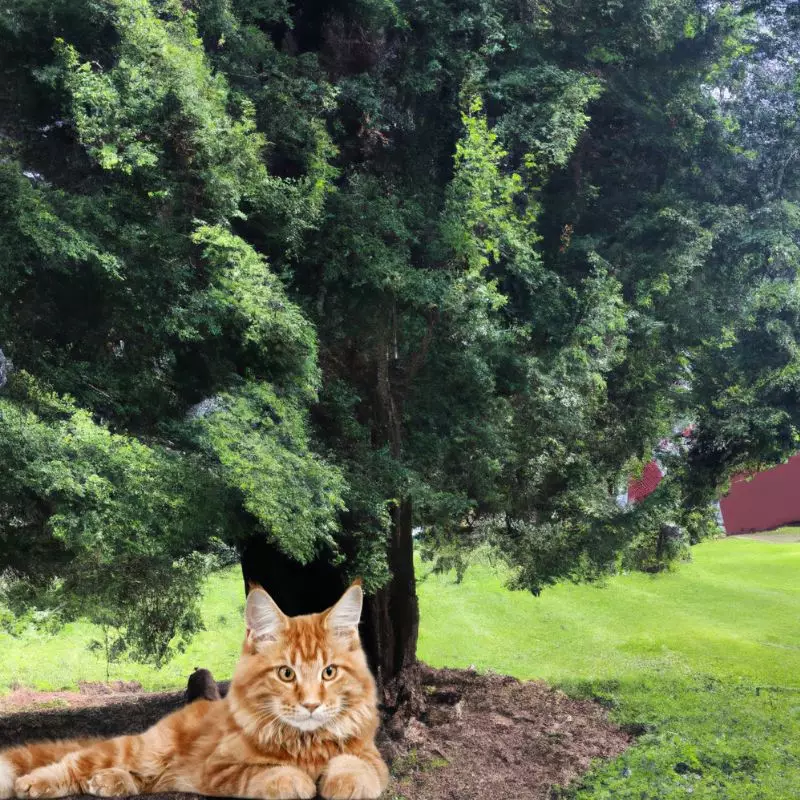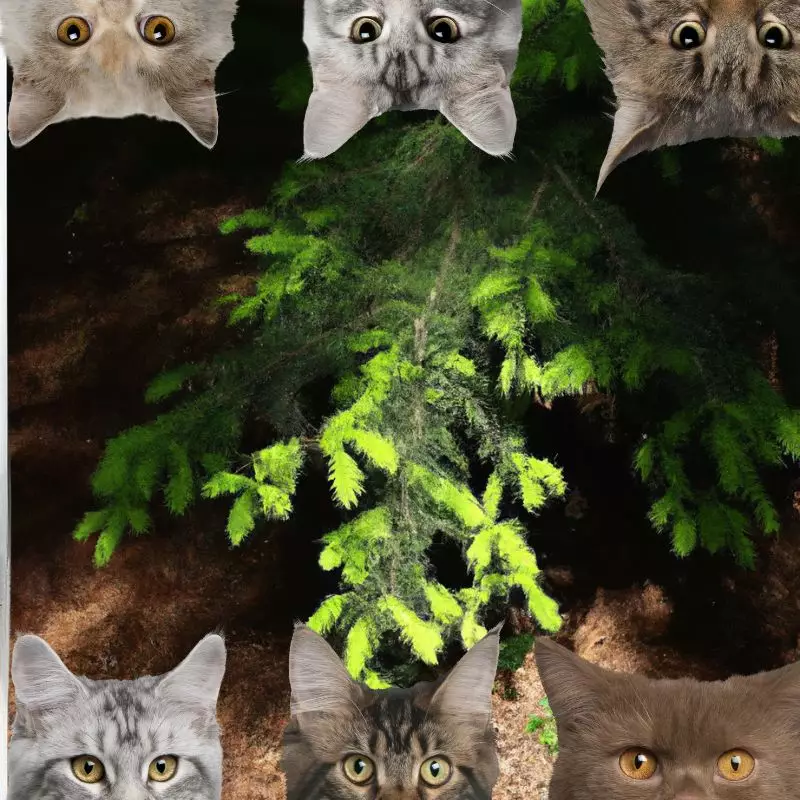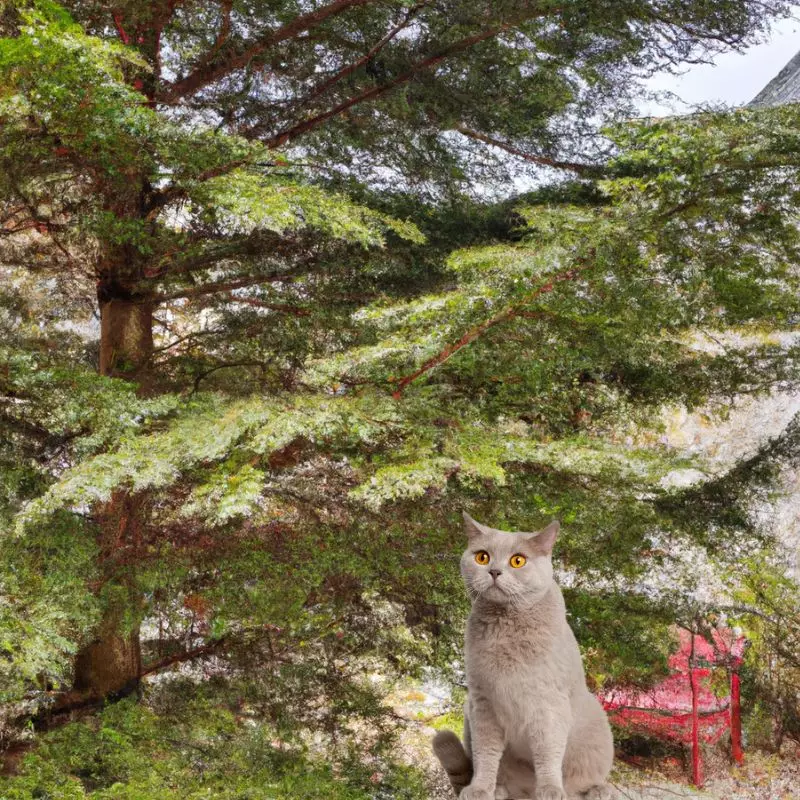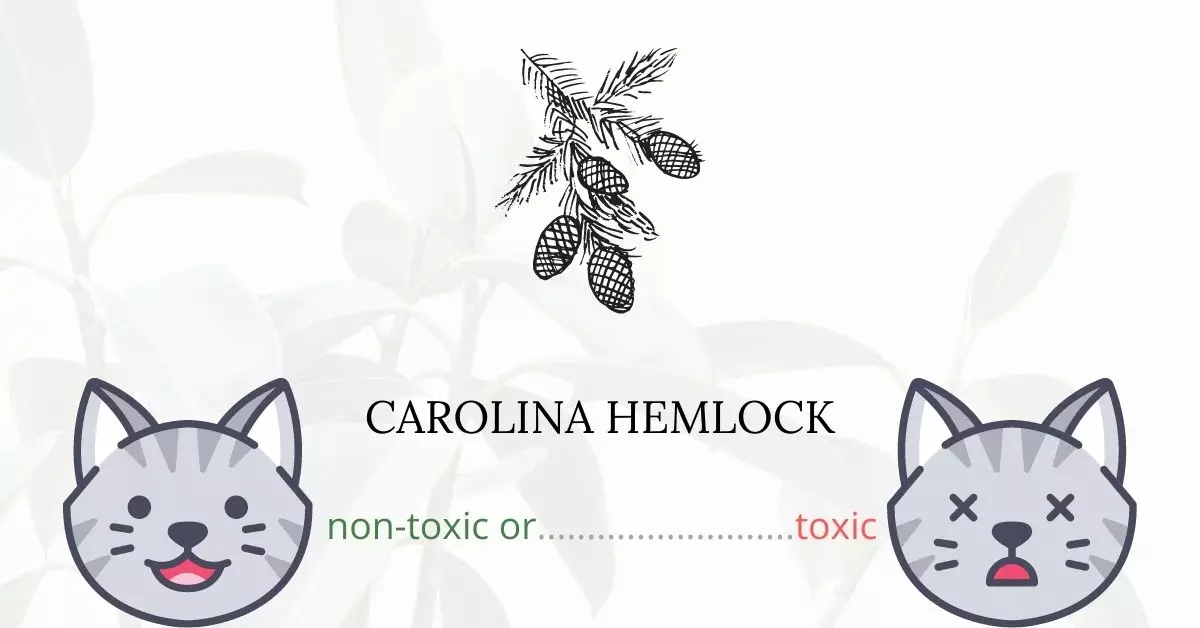Carolina Hemlock is, in fact, regarded as safe and non-toxic for cats, as substantiated by authoritative entities such as the American Society for the Prevention of Cruelty to Animals (ASPCA) Poison Control Center, alleviating concerns for owners whose cats may take a fancy to this plant.
This article has been meticulously crafted in collaboration with a team of seasoned Doctors of Veterinary Medicine (DVMs). Their invaluable insights enable us to furnish precise and current information regarding the potential hazards posed by various flora, including Carolina Hemlock, to felines. Furthermore, we have conducted extensive research, consulting high-authority sources like ASPCA and PetMD, to ensure that every piece of information on each plant studied is backed by credible and reliable evidence. Through collective expertise and rigorous research, we strive to offer peace of mind to pet owners by providing clarity on the safety of various plants for cats.
Can Cats Eat Carolina Hemlock?

Your cats will not be harmed if they eat a tiny amount of Carolina hemlock. However, excessive plant material eating in cats might still create intestinal problems.
Chemicals used in aluminum factories, such as fertilizer and insecticides, can harm cats as well. If you have plants at home, it is best to avoid using such chemicals.
What is Carolina Hemlock?

Carolina hemlock is scientifically called Tsuga caroliniana. It is a hemlock species native to the United States. This natural Pinaceae tree thrives along cliffs and ridges. It thrives in chilly, shady areas of your environment, preferring partial to full shade and moist, well-drained soil. Carolina hemlock is only present in a few isolated locations in western North Carolina due to the hemlock woolly adelgid.
This hemlock species is a narrow pyramidal tree with pendulous branches that grows to 45 to 60 feet tall and 20 to 2 feet wide in cultivation. In the wild, it can reach over 100 feet. It has flattened evergreen needles and long, white stomatal stripes that extend down the stems. Its reddish-brown bark develops furrows and ridges as it matures.
Keeping Cats Away From Carolina Hemlock

While California hemlock is not poisonous to cats, it is still a good idea to keep them away from them to avoid illnesses or poor health effects.
Train your cat to stay away from plants in the yard and outdoors. Wrap aluminum foil around your garden plants as well. Cats dislike the crinkly feeling and sound that comes from touching or treading on aluminum foil.
Plants to Avoid For Your Cats
If you are a cat owner and unsure if the plants growing in your yard are harmful to your cats, check out this list of toxic plants for cats. You can also check our list of non-toxic plants for cats.





